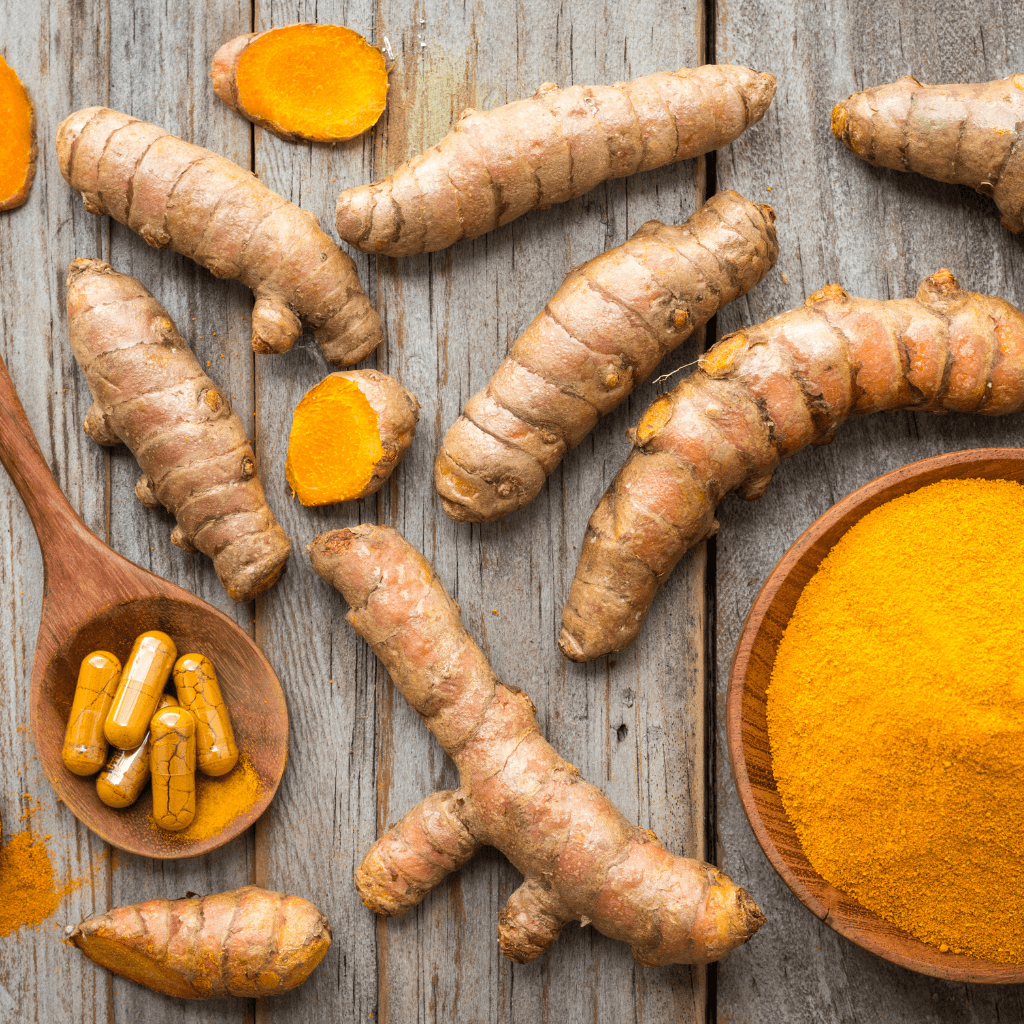In today's fast-paced world, chronic inflammation has become a prevalent health concern for many individuals. Luckily, nature offers a multitude of solutions, and one standout contender is turmeric. Renowned for its natural anti-inflammatory properties, turmeric has been used for centuries in traditional medicine. In this blog post, we will delve into the extraordinary benefits of turmeric as a natural anti-inflammatory agent and explore how it can support your overall well-being.
Understanding Turmeric's Anti-Inflammatory Potential:
Turmeric owes its remarkable anti-inflammatory prowess to its primary active compound, curcumin. Curcumin has been extensively studied for its ability to modulate inflammation in the body. Research suggests that curcumin inhibits various inflammatory pathways and suppresses the activity of inflammatory molecules, providing relief from a wide range of inflammatory conditions.
 Scientific Evidence Supporting Turmeric's Anti-Inflammatory Effects: Numerous studies have demonstrated the effectiveness of turmeric in combating inflammation. For example, a study published in the Journal of Alternative and Complementary Medicine found that curcumin exhibits anti-inflammatory effects comparable to non-steroidal anti-inflammatory drugs (NSAIDs) but without the associated side effects. Another study in the journal Oncogene revealed that curcumin inhibits the activation of NF-κB, a key protein complex involved in inflammation and immune response.
Scientific Evidence Supporting Turmeric's Anti-Inflammatory Effects: Numerous studies have demonstrated the effectiveness of turmeric in combating inflammation. For example, a study published in the Journal of Alternative and Complementary Medicine found that curcumin exhibits anti-inflammatory effects comparable to non-steroidal anti-inflammatory drugs (NSAIDs) but without the associated side effects. Another study in the journal Oncogene revealed that curcumin inhibits the activation of NF-κB, a key protein complex involved in inflammation and immune response.
Conditions Alleviated by Turmeric's Anti-Inflammatory Properties:
Turmeric's anti-inflammatory properties have shown promise in addressing various health conditions. Let's explore some of the areas where turmeric may offer relief:
- Arthritis and Joint Pain: Curcumin's ability to reduce inflammation makes it a potential ally in managing arthritis and joint pain. Research indicates that curcumin may help alleviate pain, swelling, and stiffness associated with conditions like osteoarthritis and rheumatoid arthritis.
- Digestive Disorders: Inflammatory bowel diseases, such as Crohn's disease and ulcerative colitis, can significantly impact an individual's quality of life. Studies have suggested that turmeric may help reduce inflammation in the gut and improve symptoms, providing relief for individuals suffering from these conditions.
- Cardiovascular Health: Inflammation plays a critical role in the development of cardiovascular diseases. Curcumin's anti-inflammatory properties may help reduce markers of inflammation in the body, contributing to improved heart health and lowering the risk of heart disease.
- Skin Conditions: Skin conditions like acne, psoriasis, and eczema often involve inflammation. Turmeric's anti-inflammatory effects, when applied topically or consumed orally, may help soothe irritated skin and promote a healthy complexion.
Incorporating Turmeric into Your Daily Routine
Now that we've explored the impressive anti-inflammatory benefits of turmeric, you may wonder how to incorporate it into your daily routine. Here are a few practical suggestions:
- Turmeric Supplements:High-quality turmeric supplements standardized to contain a significant amount of curcumin like Turmeric Gold or Inflammation Relief. Ensure the supplement you choose includes piperine, a compound that enhances curcumin absorption.
- Golden Milk: Prepare a comforting and nutritious drink by combining turmeric with warm milk, a pinch of black pepper, and a natural sweetener. This traditional concoction, known as golden milk, offers a delightful way to enjoy turmeric's benefits.
- Culinary Delights: Sprinkle turmeric powder on roasted vegetables, add it to curries, soups, or stir-fries, and experiment with turmeric-infused recipes. This versatile spice can lend a vibrant color and unique flavor to your dishes while enhancing their anti-inflammatory potential.
Conclusion: As you embark on your journey towards a healthier and more balanced life, turmeric stands as a natural ally in the fight against chronic inflammation. With its potent anti-inflammatory properties, turmeric, enriched with curcumin, has garnered attention for its ability to reduce inflammation in the body. Extensive research supports the effectiveness of turmeric as a natural anti-inflammatory agent, making it a promising addition to your wellness routine.
Scientific studies have showcased the impressive anti-inflammatory effects of curcumin. For instance, a study published in the Journal of Alternative and Complementary Medicine demonstrated that curcumin can effectively inhibit inflammation comparable to NSAIDs, but without the associated side effects. Another study published in the journal Oncogene highlighted curcumin's ability to suppress NF-κB activation, a crucial protein complex involved in inflammation and immune response.
Turmeric's anti-inflammatory benefits extend to a wide range of health conditions. Individuals suffering from arthritis and joint pain can find relief through turmeric's ability to alleviate swelling, stiffness, and discomfort. Digestive disorders such as Crohn's disease and ulcerative colitis, which involve gut inflammation, may also benefit from turmeric's anti-inflammatory properties.
Maintaining cardiovascular health is crucial, and turmeric can play a role in reducing inflammation that contributes to heart disease. By incorporating turmeric into your routine, you can potentially lower markers of inflammation in the body, promoting a healthier heart. Furthermore, skin conditions like acne, psoriasis, and eczema, often aggravated by inflammation, can benefit from turmeric's soothing effects when used topically or consumed orally.
To incorporate turmeric into your daily regimen, there are several practical approaches. Turmeric supplements standardized to contain a significant amount of curcumin, combined with piperine for enhanced absorption, are readily available. You can also savor the goodness of turmeric by preparing golden milk—a comforting drink made with turmeric, warm milk, black pepper, and a natural sweetener. Additionally, adding turmeric powder to various dishes such as roasted vegetables, curries, soups, and stir-fries can infuse them with a vibrant color and a delicious anti-inflammatory twist.
In conclusion, harnessing the power of turmeric as a natural anti-inflammatory agent can be a valuable addition to your wellness journey. Supported by scientific evidence, turmeric, with its curcumin content, offers a wide range of potential benefits for conditions related to inflammation. By incorporating turmeric into your daily routine, you can take a proactive step towards reducing inflammation, promoting overall health, and embracing a vibrant life.




